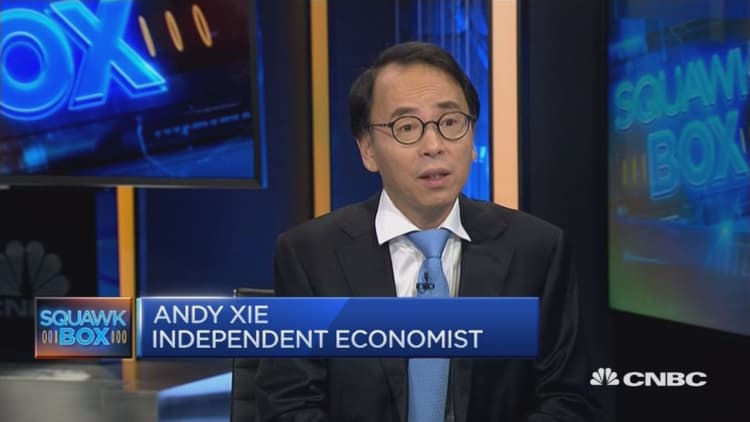
China is trying to block companies from moving money out of the country and borrowing too much, but that crackdown has a lot more to do with politics than economics, an independent economist said Tuesday.
"The issue is that the economy is politicized, especially in China in the last few years," Andy Xie told CNBC's "Squawk Box."
Regulators in the world's second-largest economy have been cranking up the heat on local companies as part of a broader crackdown on financial risk and capital outflows before the Communist Party of China's 19th national congress in the fall.
In June, media reports said domestic banks had been asked by regulators to review their exposure to foreign debt incurred by some of China's most prolific buyers of overseas assets, including property developer Dalian Wanda, conglomerate Fosun International and insurance company Anbang.
Acquisitions made by those companies include Anbang's 2014 purchase of the Waldorf Astoria hotel in New York, as well as Dalian Wanda's purchase of U.S. cinema chain AMC Theatres and Legendary Entertainment as part of its push into the entertainment business.
Such highly-publicized deals overseas worth tens of billions of dollars were just a small fraction of the $2 trillion that has vacated China mostly "without any sound," so highlighting them served another purpose, according to Xie.
'Killing a chicken'
"China has a tradition of killing a chicken and show it to the monkeys. How do you stop people from taking the money out? You take down the people you know" who are taking money out and make an example of them, he said.
"China is still in this mode of walling the money inside. Otherwise they will lose control over the game; that is paramount to the government," Xie added.
The Chinese government is striving to maintain stability above all else before the party congress expected in the fall of this year, the independent economist explained.
"The whole country now is in a standstill mode, nothing moves. We are not going to see anything in the near future," said Xie.
That's the lens by which China's current crackdown on debt and financial leverage should be viewed, he said.
"I'm not sure their intention is to say, 'This financial leverage is wrong and it's illegal, it's not good for the financial system in the long run, so we should shift the financial system from a command-and-control system to a more market-based, rule-of-law-based system,'" said Xie.
It's "to prevent a crisis from coming down, that's the imperative. It's not really about the health of the financial system in the long run," he added.
—CNBC's Ming Cheang contributed to this article.

